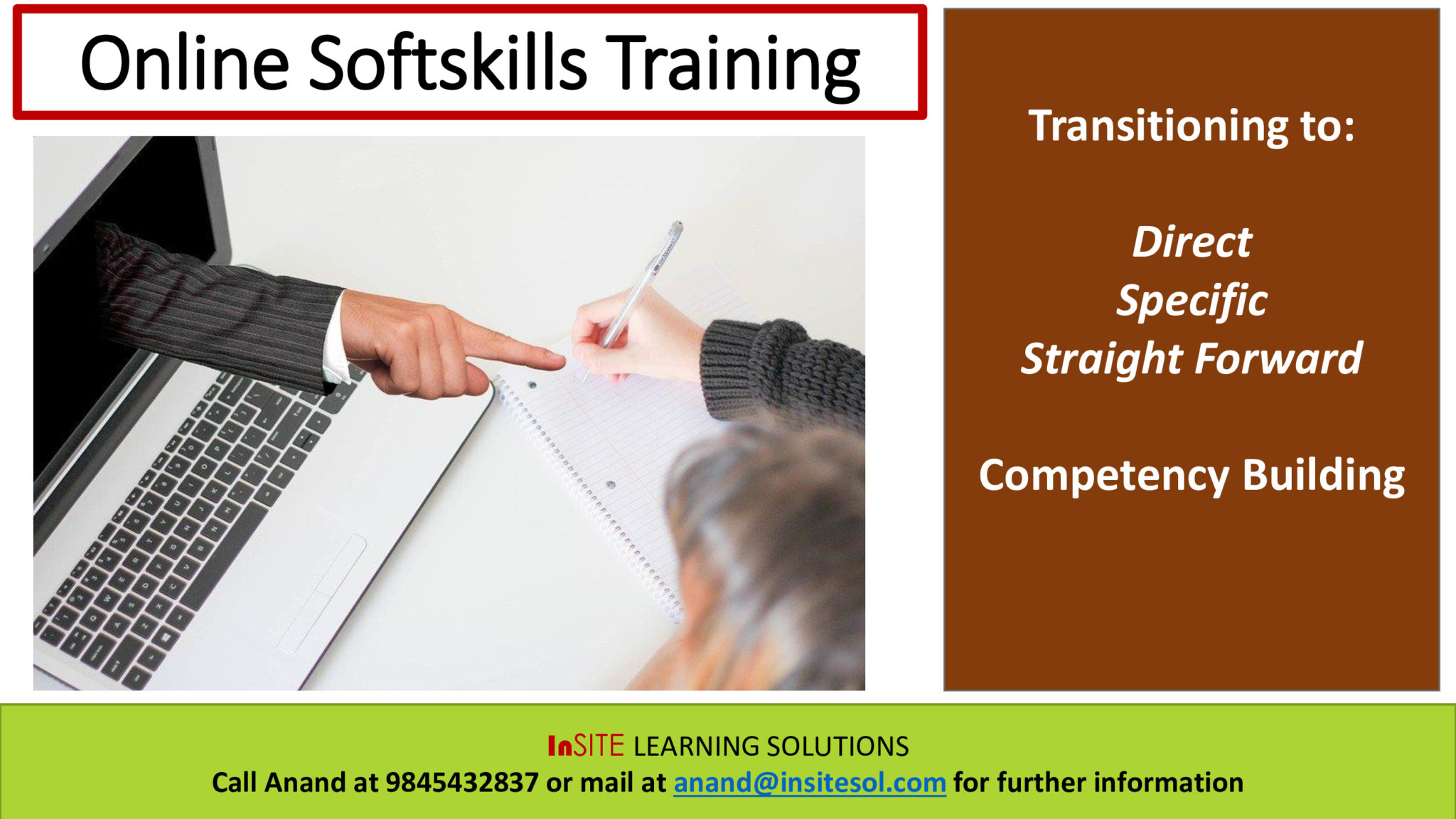
What Softskills Mean: Transition to Competency Building
The current challenge: The Lockdown and its various restrictions
If there is anything I care about strongly and persistently as a training professional, it’s for the training community to be taken seriously by clients and stakeholders. It’s been a remarkable journey for me personally
as I have been one since over 14 years training multifarious sectors and industries.
I have a lot of respect for the training community, their intent of developing people in turn to benefit their clients and stakeholders. I have witnessed incredible passion, aspiration and enthusiasm among them when
personally training over 500 trainers within the country in the past 6 years.
The question of what Softskills mean today needs deep thinking. This is because of the lockdown and some current trend force me to think about it. If the trend will switch to training corporate workforce online henceforth, the soft skills training community need to wake up to the challenges, changing trends bring along with it.
Considering the restrictions of the lockdown and its aftermath, what must soft skill training professional focus on to add value to learners?
Lockdown or not, I meant “changing trends” indicate the future of learning is going to be online. Adding value can be very challenging due to limitations compared to the level of engagement that can be achieved indirectly classroom setups.
Aspects that need more focus in the future of soft skills training:
- Focus on Competencies:
The best way the softskills training community can add value now is to focus absolutely on Competency Building. Be Direct, Specific and Straight forward in the approach of developing key competencies among learners so that they experience specific takeaways of value even if they spent just an hour or two with the facilitator online. I would like to write separately for how a focus on competency building can be achieved. In a nutshell, whether it is Leadership Training, Managerial Programs or Interpersonal Skills, trainers have to now look at softskills as competencies that directly co-relate and complement learner’s hard or technical skills.
I strongly recommend that a competency grid be prepared by trainers for every intervention that determines the extent of Concepts, Skills and Attitudinal aspects that will be addressed and seek approval from concerned stakeholders. That’s the way forward for the softskills community to be taken seriously. This is a great way of focusing on Competency Building among an audience. - Focus on Design Thinking:
Id likes to be blunt about the second aspect. I am sure many fellow training facilitators won’t hesitate to accept that they have well thrived by depending on their ‘charm’, experience, presenting skills, sense of humour, rapport building capabilities etc., in the past. Nothing wrong with it at all. Even if the ‘charm’ element will certainly help now, it’s the Instructional Design that will make the difference when engaging an audience through a laptop/smartphone screen. Content developers now have to think for how learning can happen even with the total absence of a facilitator during a learning session.
We at Insite Learning Solutions are concerning ourselves with the above 2 differentiators. Focusing on Competencies and Design Thinking. We also would like to focus our Train The Trainer Sessions on training wannabe trainers to master the above two aspects so that we produce training professionals who are ready for future challenges and mean their business.
